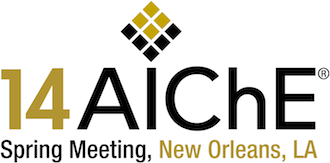The plant test is a critically important step in the development of model-based process controllers such as MPC, since the resulting data becomes the basis for identifying a multivariable dynamic model of the plant. A range of testing approaches are used in practice that entail both manual and automatic (computer-generated) test signal designs, most often in open loop, but increasingly in closed loop. The testing in industry continues to rely on uncorrelated input signals, either tested manually one input at a time or generated randomly to achieve a low level of spatial correlation between any two inputs (e.g., PRBS); However, such signals are statistically optimal only when the constraint bounds are limited to the inputs. Academic investigations have shown the benefits of designs which lead to correlated, higher-amplitude input signals.
A natural framework for posing the input design problem is via the optimal design of experiments (DOE), as has been traditionally performed in static regression problems, where the optimization can be formulated to minimize the covariance of the model parameters, or a control-relevant quantity, subject to bounds on inputs and outputs. Unfortunately, the resulting optimization problem is nonlinear and typically non-convex. As a result, investigations have been generally limited to SISO or small MIMO problems, and the more tractable DOE formulations have been based on static models, with the dynamics treated in an ad hoc fashion. Development of DOE formulations that avoid these short comings and address industrial needs would increase the potential for DOE use in practice.
In this work, previous DOE results of Darby and Nikolaou [1], which addressed the objectives of integral controllability and D-optimality for the steady-state case, are extended to the dynamic case. Control relevant constrained DOE formulations are developed that are computationally tractable for identification of dynamic FIR multivariable models.
References
- Darby, M.L. and M. Nikolaou, Multivariable system identification for integral controllability. Automatica, 2009. 45(10): p. 2194-2204.


